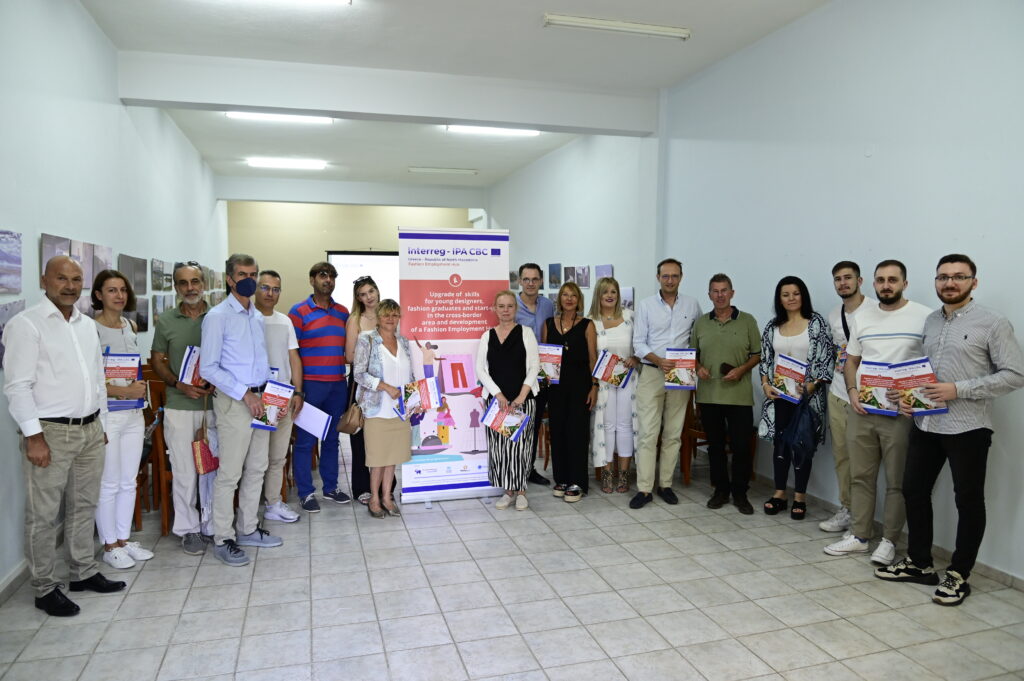The prospects for transnational cooperation in the clothing sector, from the raw material to the final product, are significant

The information event of the project “Upgrading skills for young designers, fashion graduates and start-ups in the cross-border area and developing a fashion employment hub” was successfully held last Wednesday in the hall of the Erodios Hotel in Lithotopos Serres.
At the start of the event, the Deputy Regional Governor of Serres, Mr. Panagiotis Spyropoulos, addressed a greeting, who praised the importance of transnational cooperation projects for the prefecture of Serres and informed the guests about the advantages and possibilities provided by the prefecture of Serres in a number of sectors, among others and in the primary sector with the important crops of cotton,
The floor was then taken by the director of KDVM Mr. Athanasios Kalathas who presented the Fashion Employment Hub project which aims at the common cross-border challenges of the fashion sector by establishing a “Fashion Employment Hub” that will support SMEs and new graduates in the fields of fashion and fashion-related sectors (clothing, apparel, footwear, leather, jewelry).
Then the general manager of the “Association of Ready-made Garment Knitting Companies of Greece”, Mr. Theofilos Aslanidis, presented the current state of the sector as well as its development prospects, referring to the importance of the production and trade of clothing for the national economy, an activity which, after COVID and the disruption of international trade, it seems to be returning to Greece and reborn.
Mr. Antonis Siarkos, president of the Pan-Hellenic Association of Cotton Ginners and Exporters, presented in detail a relevant program implemented by the European Cotton Alliance, with the aim of promoting and promoting the entire value chain from the raw material – cotton, to the final garment. Mr. Siarkos underlined the responsible, sustainable and environmentally friendly way applied by Greek cotton producers and emphasized that the goal of all those involved in the value chain is to establish the EU Cotton brand and for the end consumer to know that he is purchasing clothes created from European cotton high quality, traceable and environmentally friendly.
The very interesting day was closed by Ms. Natasa Sivevska, Executive Director of the Textile Trade Association of North Macedonia – Textile Industry Group, who described the importance of the textile industry for the economy and development of the neighboring country and pointed out that the goal of the textile workers of North Macedonia Macedonia in the coming years is to reduce its dependence on the German market (main country of absorption of their exports), developing and developing new markets.

